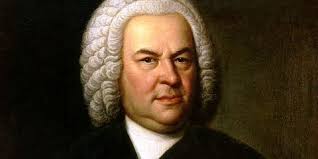Latest Comments

Johann Sebastian Bach: A Comprehensive Biography
Johann Sebastian Bach (1685-1750) is widely regarded as one of the greatest composers in the history of Western music. His monumental work, encompassing a vast[…]

Bach – Flute Sonata in B minor
Johann Sebastian Bach’s Flute Sonata in B minor, BWV 1030, stands as one of the most profound and expressive chamber works ever composed for the[…]

Bach – Violin Partita No. 2
Among the masterpieces of solo violin literature, Johann Sebastian Bach’s Violin Partita No. 2 in D minor, BWV 1004, holds a special place. Composed around[…]

Bach – B Minor Mass
The Mass in B Minor (BWV 232) stands as one of the greatest achievements in Western classical music. Composed by Johann Sebastian Bach during the[…]

Bach – Six Suites for Solo Cello
Johann Sebastian Bach’s Six Suites for Solo Cello (BWV 1007–1012) stand among the most iconic and enduring works in the entire cello repertoire. Composed during[…]

Bach – Toccata and Fugue in D minor
Among the most iconic and instantly recognizable pieces of classical music ever composed, Toccata and Fugue in D minor, BWV 565, by Johann Sebastian Bach,[…]

Bach – St Matthew Passion
Among the towering masterpieces of Western classical music, few works have achieved the spiritual and artistic magnitude of Johann Sebastian Bach’s St Matthew Passion (Matthäus-Passion,[…]

Bach – The Well-Tempered Clavier
Johann Sebastian Bach’s The Well-Tempered Clavier (Das Wohltemperierte Klavier) stands as one of the most monumental works in the history of Western classical music. Composed[…]

Bach – Concerto for Two Violins in D minor
The Concerto for Two Violins in D minor, BWV 1043, also known as the “Double Violin Concerto”, is one of the most celebrated and enduring[…]

Bach – The Goldberg Variations
Among the towering works of the keyboard repertoire, few have captivated audiences and musicians alike as profoundly as The Goldberg Variations, BWV 988, by Johann[…]
© 2025 Top Classical Music. Created with ❤ using WordPress and Kubio